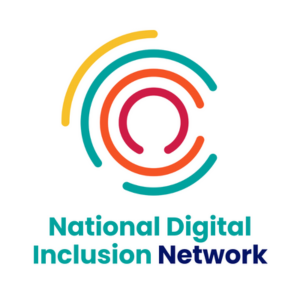Insights
INSIGHTS
All Topics
How to overcome digital exclusion
08 Apr 2021by Joe Lepper
From helping children to learn remotely to ensuring asylum seekers gain online skills, charities are finding innovative ways to promote digital inclusion
Digital exclusion is fast becoming one of the major challenges in society. From securing work and learning at school to accessing bank details and communicating with friends, almost every aspect of life requires at least basic digital skills.
According to latest figures, however, millions of people face exclusion from these everyday aspects of life due to a lack of digital skills and access to technology, such as devices, home computers, and good internet access.
Communications regulator Ofcom found that in 2019 around seven million people did not have home internet access. This is around one in ten adults of the population. At least one in five adults who are not online said that cost was a barrier to them.
The impact of COVID-19
In addition to the above, the COVID-19 pandemic has exacerbated digital exclusion, with workplaces increasingly turning to technology for remote and home working. Even when organisations reopen their offices the move to blended working options, combining home and office, is already increasingly being used by employers.
The digital divide in education has also become more pronounced amid the pandemic, with many children struggling without devices and internet access.
According to a study by the National Foundation for Educational Research,
into challenges faced within schools during the health crisis, more than a quarter (28%) of pupils had little to no IT access at home during 2020. This rose to 43% in schools in deprived areas.
With their background in supporting disadvantaged families and individuals, charities have a crucial role to play in helping bridge the digital divide and tackling exclusion.
Focusing on building confidence among those digitally excluded is key, according to a report by digital inclusion charity Good Things Foundation (GTF), following research it carried out with Accenture and Nesta.
Building digital confidence
GTF’s 2021 report, called Shocks, knocks and building blocks, calls on charities to equip people with soft skills such as motivating them to use digital and build their confidence.
The report said that local charities are “often best placed to help people build confidence and learn digital skills simultaneously”. Many are already taking action, both before the pandemic and more recently to ensure communities are not being left behind.
GTF cited the work of Sheffield community hub Learn for Life Enterprises, which supports the city’s Black, Asian, and Minority Ethnic (BAME) community, including refugees and asylum seekers. It offers a range of IT and computer courses to tackle digital exclusion.
“Learning is informal, flexible and social,” said GTF of the support Learn for Life Enterprises offers. This includes offering a class in the morning, socialising over lunch, and access to digital resources in the afternoon.
“Learners who first arrived at the centre with low digital skills have progressed through the resources and now act as volunteers to support other people,” said GTF. “The relaxed setting of Learn for Life means volunteers help in whatever capacity they are needed; often, they have themselves experienced some of the challenges new learners are facing.”
Tackling the digital divide in education
Charities are also stepping in to support disadvantaged pupils to learn at home.
Earlier in 2021, sustainable electronics charity The Restart Project launched a campaign in London to mobilise donations of laptops and volunteers with digital skills, so that unused devices can be used by students.
The charity created a “virtual help-desk” for community projects across the capital to allocate “challenging repair” work to Restart’s volunteers.
“Our goal is to repair and ready 240 laptops for use by students in need, and to donate any funds not used for spare parts or transport to reuse organisations in our London network,” said The Restart Project.
Charities are also stepping up their lobbying of government to call for further help to tackle digital exclusion among children.
In 2021, charities linked up with MPs to urge ministers to ensure all children have access to technology at home. The Sutton Trust and Child Poverty Action Group were among those taking part in the campaign, alongside MPs including Labour’s Siobhan McDonagh.
Our urgent letter calling on @BorisJohnson to ensure that every child away from school has the data and device required to log in at home.
— Siobhain McDonagh MP (@Siobhain_Mc) January 4, 2021
Because no child's education should be dependent on their internet connection.#DigitalDivide #Teachers #Schools pic.twitter.com/RYZqogHB8f
Small charities are particularly important to combating digital exclusion, according to A report published by the Lloyds Bank Foundation earlier this year called The Value of Small in a Big Crisis.
This points to the value small charities can offer in combining offline and online support. For example, during the COVID-19 pandemic “smaller charities were seeking to mitigate digital exclusion by calling or visiting the people they knew weren’t online”.
It also stressing the need for charities to make better use of online support, but not in a way that exacerbates digital exclusion.
Joe Lepper
More on this topic
Recommended Products
Recommended Products
Our Events
Charity Digital Academy
Our courses aim, in just three hours, to enhance soft skills and hard skills, boost your knowledge of finance and artificial intelligence, and supercharge your digital capabilities. Check out some of the incredible options by clicking here.





















